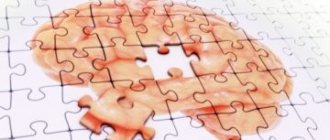Anxiety disorder is a group of neuroses that includes generalized anxiety disorder, panic disorder and social anxiety disorder, as well as a number of specific phobias. Anxiety disorders are extremely common; according to some estimates, every fifth person experiences them in one form or another (statistics for developed countries). The most persistent and difficult to treat form is generalized anxiety disorder, and when people talk about anxiety disorders, they often mean it.
The significance of the causes of anxiety disorder in the diagnosis of the disease
Generalized anxiety disorder (GAD) is a type of neurosis characterized by persistent general anxiety that is not related to specific circumstances. The disease tends to become chronic, in this case it is characterized by an undulating course, when exacerbations alternate with remissions.
The incidence of GAD among women is twice as high as among men. The disease can begin at any age, including children and adolescents. In adults, it is often accompanied by depression, alcohol or drug addiction, which aggravates the underlying disease.
Determining the cause of an anxiety disorder is a key diagnostic issue, since the treatment strategy depends on it. Symptoms of an anxiety disorder can be caused by thyrotoxicosis, so part of the evaluation is to test the level of thyroid hormones in the blood. Similar symptoms can also be caused by cardiovascular pathology, withdrawal syndrome after long-term therapy with certain drugs, as well as intoxication with certain substances.
When it comes to true anxiety disorder, it often does not have any clearly identifiable cause other than exposure to stress.
The main symptom of the disorder is, in fact, anxiety, which the patient is unable to control, anxiety so strong that it seriously reduces the quality of life. Anxiety is often accompanied by physical symptoms: increased heart rate, trembling, muscle tension, sweating, etc. Patients may complain of headaches, sleep disorders, abdominal cramps, and shortness of breath.
All these signs are nonspecific; they occur both in somatic diseases and in other mental pathologies, for example, depression, phobia, obsessive-compulsive disorder. It also happens that patients who experience severe anxiety due to certain circumstances or events consult a doctor with complaints of an anxiety disorder. Despite the fact that their condition may be quite severe and require medical attention, the diagnosis of an anxiety disorder is not confirmed. Diagnosis must be very thorough; it requires high competence from the doctor, as well as a complete examination of the patient.
The test for an anxiety disorder is considered positive if a state of increased anxiety, which has no justification in the form of any object or event, causes in the patient not only mental, but also physical, as well as vegetative symptoms that reduce the quality of his life and lasts six months or longer .
The specialists of the Renaissance Rehabilitation Center have the necessary qualifications and extensive clinical experience, which allow them to carry out error-free diagnosis even in complex cases of combined pathology. Needless to say, the earlier the disorder is diagnosed, the faster it is possible to provide the patient with adequate help and alleviate his condition.
Anxiety disorder and its treatment
In today's stressful world, the issue of diagnosing a neurotic disorder such as anxiety disorder and its treatment is becoming increasingly relevant.
And there are quite understandable prerequisites for this. People are constantly in a hurry to get somewhere, solve urgent problems, report for work done and listen to dissatisfaction, reproaches and complaints from their superiors for unfulfilled work. Those tasks and actions for which enough time was allocated a hundred years ago now need to be done in a couple of hours. At the beginning of the 20th century, a professor gave one lecture a week, with at least six days to prepare, but modern teachers often have three, four, or even five lectures every day. According to analysts, the amount of information on the Internet doubles every year and a half. Such a sudden acceleration of life and an information explosion cannot but affect a person’s mental health.
This is why the number of people with anxiety disorders is growing. At the same time, the number of registered cases, which is, of course, less than it actually is, is due to the fact that the population begins to get used to psychiatrists, accept them, cease to be afraid and increasingly seek help. If previously a person preferred to sit at home and not tell anyone about his problems, then with the growth of the level of culture, we more often come for consultations with specialists with the prefix psycho-, making, of course, the right decision.
It often happens that people with anxiety disorders turn not to psychiatrists, but to general practitioners (therapists, neurologists, cardiologists, family doctors, etc.). Often these requests are not related to a specific disease from which the person actually suffers, although, of course, in this case, anxiety may arise in connection with the occurrence or presence of somatic diseases. Quite often, people do not turn to a psychiatrist for help due to the fact that anxiety is often manifested by somatic symptoms - nausea, flatulence, redness or paleness of the skin, headaches and other manifestations.
Anxiety Disorder: Symptoms and Treatment
Diagnosing an anxiety disorder and its symptoms is complicated by the fact that it is normal to have a certain level of anxiety, as anxiety is a natural human emotion that is very important and necessary. It leads to the emergence of a certain internal tension, which, among other things, does not allow, so to speak, to postpone our important tasks until the deadline and thus serves as a source of motivation. Elizabeth Zintl called anxiety an emotional temperature that signals that our mental balance is disturbed.
But, if a person constantly experiences increased anxiety, then it interferes with his normal life, work and relationships and does not fulfill its natural functions, but, on the contrary, increases maladaptation, then this is already a disease that requires treatment. Quite often, people suffering from anxiety disorders turn to general practitioners and receive diagnoses that have nothing to do with their real problem.
Have you ever heard the phrase that all diseases are caused by nerves? If we talk about anxiety disorders, then it fully justifies itself. According to research, more than half of those who visit general practitioners do not have any somatic diseases. Most often, the reason for their poor health is increased anxiety as a result of the presence of an anxiety disorder. And there is nothing surprising here, because anxiety is a reaction to both external circumstances and the internal state of the body. And it turns out that anxiety causes vegetative symptoms, and on the other hand, vegetative disorders can cause anxiety. Therefore, in the treatment of both anxiety disorders and autonomic disorders, an important role is played by the so-called breaking of this vicious circle, this relationship.
If the patient has somatic complaints, this complicates the diagnosis of an anxiety disorder. If a person has a combination of physical illnesses and an anxiety disorder, then their manifestations reinforce not only each other, but also, of course, the maladjustment of the patient.
Therefore, in the presence of certain somatic diseases, it is recommended to use anti-anxiety therapy at an earlier stage of treatment, even if the anxiety symptom is mild.
Very often, somatic doctors do not take into account patients’ complaints about their emotional state. In their opinion, if a person comes with complaints of back pain, then he must be treated specifically for this pathology, even if at the same time he talks about his emotional experiences, which are caused by problems and difficulties in his life. Therefore, every family doctor, internist, neurologist and other general practitioner would greatly benefit from basic knowledge about anxiety disorders so that he can understand the patient’s condition and explain what is happening to him. And then it is quite possible to expect a person with increased anxiety to be referred to a specialized specialist (psychiatrist, psychotherapist) so that the person suffering from an anxiety disorder receives professional and competent treatment.
Anxiety disorder: treatment with antidepressants
To relieve symptoms of anxiety disorder, treatment with antidepressants and drugs of other pharmacological groups is used. But it is very important that the doctor is guided not only by his personal preferences, but also takes into account the opinion of the patient. You can often encounter a situation where, in cases of severe anxiety, the attending physician prescribes medications and a referral for psychotherapy, without practically explaining to the patient the features of the disorder and its treatment. It seems that everything is fine, he made the correct diagnosis, knows what to prescribe and where to send it, but all these recommendations will be of no use if the patient himself does not want to apply them. That is why it is necessary to discuss the situation with the patient, because he may be opposed to drug treatment and in any case will not go to the pharmacy with a prescription, or he is prejudiced against psychotherapy and considers this method to be charlatan. The doctor’s task is to find out the patient’s preferences and explain to him the necessity and effectiveness of the prescribed methods. It is necessary to achieve compliance in the relationship and cooperation between the doctor and the patient.
Of course, one should not neglect the knowledge and experience of the specialist who prescribes treatment, as well as the standards of treatment for mental disorders. The doctor already has his own personal experience and preferences, built up over the years, in prescribing certain necessary drugs, as well as recommendations on what treatment and at what stage will be the most effective, of course, taking into account the standards of treatment of mental disorders. Ideally, the doctor and patient do not disagree on this issue, but if this happens, the doctor should try to tailor his prescriptions to the individual.
When choosing a drug to treat anxiety disorders, it is very important to consider its long-term effects and whether it will maintain remission, as well as whether the patient will tolerate treatment with this drug without side effects. Today there is a very wide variety of drugs, and when prescribing treatment, it is important not only the effectiveness of the drug and the speed of onset of improvement, but also its long-term medicinal effect and, of course, the presence of side effects.
Research has shown that the placebo effect is very influential in patients with anxiety disorders. But this effect tends to weaken over time, and quite quickly. And the recommended period of treatment for anxiety disorders is at least a year, although these periods are very individual.
Antidepressants, which are recommended for the treatment of anxiety disorders, must be used for a longer period than for the treatment of depression.
The drugs must be continued to be taken not only until the painful symptoms - pathological anxiety - are completely eliminated, but also for a longer period of time (up to one year) in order to have an anti-relapse effect. After achieving the desired result, it is very important to continue anti-relapse therapy for anxiety disorder, which is recommended to be used, as mentioned earlier in this article, for about a year.
Sometimes there are cases when the prescribed treatment does not lead to the expected result. This may be due to an incorrect treatment algorithm - choice of drug, its dose, timing of treatment.
As for antidepressants, there are some features in their use for the treatment of anxiety disorders:
- For the treatment of anxiety disorder, it is recommended to use a higher dose of antidepressants than for the treatment of depression. If you use low doses of antidepressants, then the effect of treatment will be insufficient.
- If, when using antidepressants in a therapeutic dose for 2 months, there is no weakening of anxiety symptoms, then this drug can be called ineffective and another one can be selected that has a different chemical structure and mechanism of action.
- Antidepressant drugs begin to act only after 3 weeks, but they still need to be allowed to work for some time in order to get any positive results. Therefore, we cannot judge the effectiveness of treatment when taking even the optimal dose of an antidepressant less than one month (three to four weeks) from the start of taking it. And changing an antidepressant to another before one month does not make sense at all and is simply not reasonable.
If the effectiveness of the prescribed treatment for an anxiety disorder is insufficient, a potentiation method is used by adding another drug.
Then a serotonergic antidepressant is prescribed as the main one and combined with anti-anxiety drugs or benzodiazepines. Despite the fact that this combination enhances the effectiveness of treatment, one should also remember about the presence of such undesirable consequences as addiction when using benzodiazepines for more than 1.5 months.
It also makes sense to combine antidepressants with anxiolytics (anti-anxiety drugs) and benzodiazepines in the first month of taking antidepressants that are not yet working, and the patient needs to alleviate increased anxiety, improve sleep, etc., that is, thus help wait for the antidepressants to take effect.
Treating Anxiety Disorder Without Antidepressants
It used to be common practice to treat anxiety disorders without antidepressants. But the approach to treating anxiety disorders has changed in recent years. For another 25-30 years, the dominant assertion was that the only effective method of treating anxiety neurosis was psychotherapy (from psychoanalytic to hypnosis). Nowadays, a combination of psychotherapy and medications is most often used. But, of course, medications should not cause a pronounced sedative effect. After all, if a sleepy and lethargic patient sits at a psychotherapist’s appointment, then the effect of such a session will be very insignificant. With the development of the pharmacological industry and significant progress in it, modern anti-anxiety drugs do not have a pronounced sedative effect and, moreover, have proven effectiveness in the fight against anxiety disorders. Therefore, now it makes no sense to talk about the opposition of drug treatment and psychotherapy - they work much more effectively together.
If an anxious patient trusts the doctor, is sympathetic to the prescribed treatment, and uses a combination of medications and psychotherapy, the anxiety disorder will have no chance. And the person will be able to return to his old life and feel happy again!
Is it possible to self-treat an anxiety disorder?
A healthy person is quite capable of coping with even severe anxiety, even if this does not happen immediately, it may take several days, but sooner or later he will find a way to restore peace of mind. But the difference between an anxiety disorder and anxiety is that a person cannot cope with it. She can let it go for several hours or days, only to flare up again at the slightest push. This anxiety is irrational, it is not affected by the usual methods - persuasion, usual calming actions, communication with loved ones. Attempts at relaxation lead nowhere - the person is not able to relax.
Self-treatment with strong medications, as well as attempts to drown out anxiety with drugs or alcohol, cannot bring relief. Drug therapy requires careful selection of drugs and their dosages, as well as constant monitoring of their use, since most of them have a wide range of side effects. When it comes to alcohol or drugs, patients often fall into the trap of their temporary effects. Both alcohol and drugs may be able to relieve painful anxiety for some time, dulling emotions and feelings, but only for a very short period of their immediate effect, and then the patient’s condition will only worsen. This is exactly how alcohol or drug addiction develops in patients with anxiety disorders - the relief is short-lived, more and more doses are required to forget. As a result, when the patient does see a doctor, the therapy is complicated by the fact that, in parallel with the treatment of the anxiety disorder, drug addiction treatment (or alcoholism treatment) must be carried out.
Thus, the answer to the question whether anxiety disorder can be cured without consulting a doctor or not is negative.
How does anxiety disorder manifest?
Its symptoms are physiological and emotional. Anxiety states in adults are characterized by muscle tension and trembling. The person cannot sleep normally. To all of the above are added increased fatigue, rapid heartbeat, and increased sweating.
On an emotional level, problems arise with focusing attention. A person often gets irritated, assumes the worst outcome in any situation, feels empty and tense.
Diagnosis of anxiety disorders
The main way to diagnose them is to exclude other diseases and pathologies with similar symptoms. For example, anxiety disorders are often confused with somatic disorders. After all, they are also characterized by complaints of poor health and increased heart rate. But if the doctor examines the patient’s condition more carefully, he will notice that there are no disturbances in the body’s functioning. But in anxiety disorders they may be present.
Sometimes people mistake a panic attack and heart palpitations caused by an anxiety disorder for problems with the cardiovascular system.
Modern drug treatment of anxiety disorder abroad
Treatment of anxiety disorder abroad is carried out in two directions - medicinal and non-medicinal, with the second direction playing the main role. Drug therapy is used to relieve acute symptoms, and then in cases where non-drug therapy is ineffective.
Treatment usually begins with taking tranquilizers (sedatives) from the group of benzodiazepines, for example, Diazepam, and they are prescribed in a short course to avoid the formation of drug dependence. In addition, long-term use of benzodiazepines leads to depletion of the nervous system, which manifests itself in the fact that their therapeutic effect disappears. It should also be borne in mind that these drugs do not cope with depression.
If benzodiazepines are ineffective, antidepressants of various groups can be prescribed. However, they may not be effective enough; this occurs in approximately 1/3 of patients. In this case, it is recommended to use anticonvulsants (Pregabalin) and atypical antipsychotics (antipsychotics) in the treatment of anxiety disorder abroad. Unlike previously used typical ones, they have fewer side effects.
All prescriptions for the treatment of mental disorders should be made only by the attending physician, who carefully monitors the therapeutic response and adjusts therapy if necessary. As soon as the serious condition is relieved, the patient gradually reduces the dosage (to avoid the development of withdrawal syndrome), conducting further therapy with non-drug methods.
Is there a treatment for anxiety disorder without drugs in Israel?
Treatment in Israel has a distinctive feature that doctors have the opportunity to use the most advanced techniques to treat various, including mental, diseases. In this case, non-drug treatment has the most lasting effect without severe side effects, so emphasis is placed on it.
The Renaissance Clinic offers the following treatments for generalized anxiety disorder in Israel:
- Cognitive behavioral therapy;
- Teaching the patient effective relaxation techniques;
- Breathing practices – training in controlled breathing, deep breathing;
- Therapeutic physical education (sports rehabilitation).
At Renaissance, they take on the most complex cases, such as the combination of GAD with drug or other addiction, since addiction treatment and drug rehabilitation are the clinic’s specialization.
Patients here are surrounded by care and attention, stay in comfortable conditions, the staff does everything possible to ensure results - it is not surprising that the result is almost always positive.
Is anxiety disorder curable in Moscow?
Anxiety disorder, unlike many other mental illnesses, responds well to treatment, especially medication. However, this is where the main danger lies - the danger of “putting” the patient on potent drugs that he cannot do without, that is, replacing, or rather, masking one disease with another. That is why the use of psychotropic substances abroad has now been significantly reduced in those cases that can be used quite effectively by other methods.
Based on a study of reviews of the treatment of anxiety disorders in Russia, we can conclude that drug therapy is the main one there, and patients who have been taking medications for years subsequently cannot imagine life without them, while at the same time not feeling completely healthy.
Currently, a branch of the Israeli rehabilitation center Renaissance operates in Moscow, where doctors trained abroad provide assistance to patients in accordance with currently accepted international standards for the treatment of mental illness. Patients of the Moscow branch of Renaissance with anxiety disorder can count on the use of the most advanced, effective and at the same time safe techniques.
Where to get treatment for anxiety disorder in St. Petersburg
As in any metropolis, there are many people in St. Petersburg who suffer from GAD and other types of anxiety disorders and are in dire need of medical help. Unfortunately, the situation around psychiatry in Russia has developed in such a way that people try with all their might to avoid contacting a psychiatrist, even when they need it. This is partly due to poor attitudes towards people with mental disorders in society.
Such patients can be offered to either contact the Moscow branch of Renaissance, or directly to the Renaissance clinic in Israel. If a patient has a problem with drugs or other psychoactive substances, he can also receive effective drug addiction treatment in Israel.
Differences between generalized and anxiety-depressive disorders
Anxiety disorder is a mental disorder accompanied by constant worry. It is not associated with any object or situation. Even in a prosperous environment, the patient complains of rapid heartbeat and excitement, tension and trembling in the muscles, pain in the solar plexus area. People suffering from anxiety disorders are often afraid of getting sick or becoming a victim of an accident. Anxiety disorder can be generalized and anxiety-depressive.
The first type of disorder is characterized by a permanent feeling of anxiety, nervousness, and tension. It extends to all areas of life and tests a person’s strength for a long time and painfully. If there really is a psychological problem, then ordinary worries about family, work, and well-being are felt stronger and more intense. A person suffering from a generalized disorder turns any discrepancy between expectations in his head into a situation with a terrible outcome and charges himself with negativity in advance.
In anxiety-depressive disorder, depression is added to the feeling of anxiety. This means that not one, but two conditions require correction. When this disorder worsens, it acquires additional symptoms: neuroses, panic attacks.
Find out the cost of anxiety disorder treatment
To find out the cost of treatment for anxiety disorder at the Renaissance Clinic, you must take the following steps:
- Fill out the contact form on the website, indicating current contacts to contact you.
- Wait for the consultant’s response and describe the problem to him.
- Send medical documents to the provided e-mail.
- Consult an anxiety disorder specialist online (free).
After this, an individual treatment program will be drawn up, indicating its cost. This is necessary, since the course of treatment for an anxiety disorder can be very variable, it all depends on the severity of the pathology, length of service, age, presence of concomitant diseases, etc.
Generally speaking, the same course in the Moscow branch of Renaissance will cost the same as in Israel, which corresponds to average world prices, and approximately the same as in private clinics in Moscow and St. Petersburg.
Read reviews about anxiety disorder treatment
“I suffered from GAD for many years, and was sure that it was incurable. Exactly until I got to the Renaissance, where both the treatment and the doctors - everything was completely different from what I was used to. Actually, before it all boiled down to the fact that the doctor would write out another prescription, and I would simply take pills, without which I could not function normally, until the next visit, and so on. In the Renaissance, for the first time, I felt not like a faceless patient, but like a human being. The pills that undermined my health and which I thought I was doomed to take all my life, I no longer need. Anxiety is defeated, I am no longer afraid. I'm happy".
Zimina O. A., Moscow.
“Panic attacks - I diagnosed myself with this after going through diagnostics on the Internet. I also received treatment there, having studied various sources, talking with people like me on forums. Then, during a trip to visit my family in Israel, I decided to see a doctor (I don’t trust ours), they advised me to go to Renaissance. I missed the mark with the disease, but only slightly. Nervousness turned out to be an anxiety disorder. In the Renaissance they dealt with it very well, and what is important for me, without resorting to medications - I was very afraid of them, I had read about the side effects. Good clinic, good doctors!”
Rosenblat Faina Mikhailovna, Sochi.
What helps prevent anxiety disorders?
- — Regular care for the condition of the body and proper nutrition.
- - Drinking sugar, alcohol, coffee and tea in minimal quantities or completely abstaining from them.
- — Limiting activities, meetings, and activities that cause bad emotions.
- — Time devoted to rest (at least 30 minutes every day).
These are general answers to the question of how to get rid of anxiety. Everyone has their own secret of emotional balance. It is important to be able to preserve it. And if the anxious state still prevails, you should not postpone your visit to the doctor.










